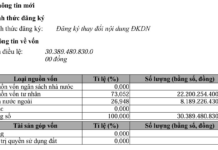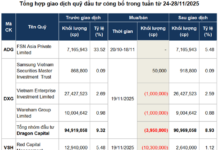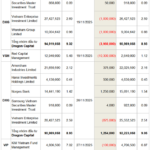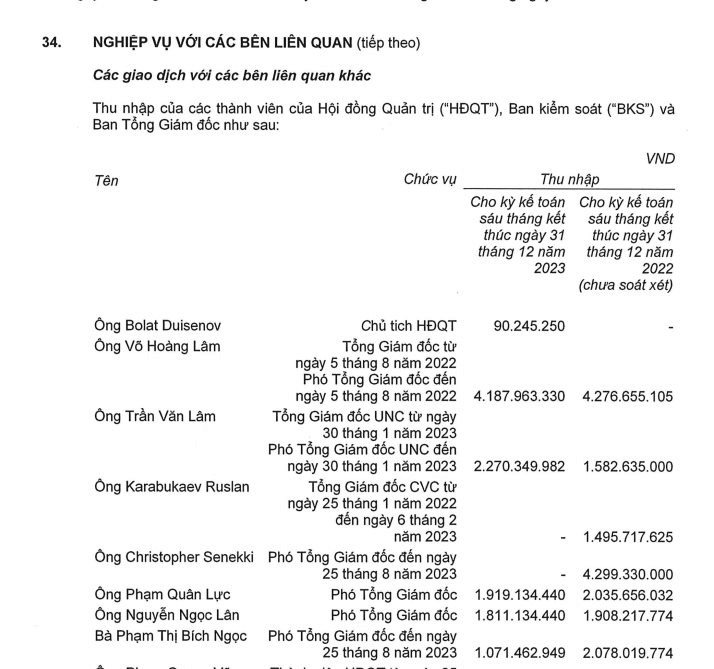The exhibition served not only as a reflection of the nation’s progress but also as a platform for leading businesses to showcase their significant contributions. Among them, Saigon Beer, Alcohol, and Beverage Joint Stock Company (SABECO) stood out with its unique display, showcasing its nearly 150-year journey alongside the country’s development.
150 Years of Accompanying Vietnam’s History
Originating from an ice factory in Ho Chi Minh City in the late 19th century, SABECO has undergone a formative journey of inheritance and development to become one of the oldest and most reputable F&B brands in Vietnam. Over the past 150 years, the company has not only produced beer but has also borne witness to the country’s economic, cultural, and social transformation.
In 1949, the first batches of beer were officially brewed, including the legendary 333 brand, which has become synonymous with generations of Vietnamese and an integral part of the country’s drinking culture. In 2010, SABECO reached a milestone of consuming 1 billion liters of beer annually, solidifying its enduring popularity and leadership in Vietnam’s beer industry.

In the context of integration, SABECO continuously innovates, enhances product quality, and conquers international markets. From 2019 to the present, the brand has won nearly 40 prestigious international awards, including, in 2024 alone, over 15 accolades from competitions such as the World Beer Awards (UK), Brussels Beer Challenge (Belgium), and International Beer Cup (Japan). Stepping into 2025, the company officially celebrates 150 years of its heritage journey, becoming a symbol of national pride intertwined with Vietnam’s economic and cultural development.
Immersive Experience at the Exhibition
SABECO’s exhibition space is designed as a journey through time, highlighting memorable milestones. From its humble beginnings in Ho Chi Minh City in the late 19th century to the birth of the iconic 333 brand, the pivotal introduction of Saigon Export in cans, and the launch of modern products like Saigon Chill, 333 Pilsner, and Lac Viet—all presented in a vibrant and emotive manner.

Additionally, the display introduces international quality awards, affirming the brand’s global recognition. Visitors also have the opportunity to learn about SABECO’s sustainable development achievements, from environmental initiatives to community engagement. The harmonious blend of traditional and modern elements transforms the exhibition space into a nostalgic journey, conveying a spirit of innovation and aspiration for integration.
Economic and Social Contributions
SABECO has not only made its mark in manufacturing but is also one of the largest contributors to the nation’s prosperity. With 25 factories, 11 member companies, and over 200,000 distribution points, SABECO has created nearly 8,000 direct and indirect jobs, boosting local economies.
For many consecutive years, SABECO has been among the top contributors to Vietnam’s state budget, becoming a crucial pillar of the economy. In parallel, the company implements meaningful community initiatives such as “Lighting Up Rural Roads” and “Lighting Up Border Roads,” as well as sports development programs, enhancing the lives of people and spreading a spirit of sharing.

Commitment to Sustainability
Aligned with national sustainability goals, SABECO has achieved notable milestones in environmental stewardship. In 2024, the company reused or recycled 100% of primary and secondary packaging, including glass bottles, aluminum cans, plastic kegs, and cardboard boxes. Since 2019, packaging weight reduction initiatives have resulted in a 15% reduction in production materials, conserving resources while ensuring quality.
SABECO has also ramped up investments in clean energy. By 2024, the rate of renewable energy usage across the entire system reached 40.54%. The company aims for a 50% target by 2030 and is committed to achieving Net Zero by 2050.
Connecting National Pride
SABECO’s presence at the exhibition extended to its partnership with the national art program, “Hanoi, Forever Vietnam’s Aspiration,” commemorating the 80th anniversary of National Day. While the exhibition space offered a historical perspective of the brand, the artistic stage allowed the public to experience national pride through music, dance, and multimedia performances.
This combination highlighted SABECO’s evolution: from a brand born of pioneering aspirations, it has continuously innovated to become synonymous with exceptional quality and progressive thinking, contributing to the tapestry of the country’s achievements.
SABECO’s exhibition will remain open until September 5, inviting visitors to explore its 150-year journey filled with memorable milestones. After more than a century and a half, SABECO has not only cemented its position as a leading beer company but has also become a national brand symbol, intimately linked to Vietnam’s development and integration.
The Pride of Vietnam: ROX Tower Illuminates the Sky with Vibrant Colors
As we immerse ourselves in the historic celebrations of the 80th anniversary of the August Revolution and National Day on September 2nd, ROX Tower unveiled an impressive “Patriot Wall”. This wall has quickly become the latest hotspot for locals, youngsters, and office workers alike, providing a unique backdrop filled with patriotic pride.
“GHTK at the 80th Anniversary Expo: Entrepreneurial Spirit, Nation Building.”
The exhibition, “80 Years of Independence, Freedom and Happiness,” is a momentous occasion to reflect on and celebrate Vietnam’s proud history, rich culture, economic achievements, social progress, and national aspirations.
How to Avoid Being ‘Herded’ by Pushy Real Estate Agents?
It is imperative that real estate businesses uphold ethical practices and leadership accountability to prevent fraudulent activities that can lead to legal repercussions and ruin careers. To foster trust and ensure long-term sustainability, brokerage firms should adopt stringent measures by employing only certified agents and providing continuous training to enhance the overall caliber of their teams.
The Goldview Investors Raise Nearly $40 Million in Bond Offerings
Between August 12 and 25, The Goldview project’s developer, Saigon Garment and Detergent Joint Stock Company, successfully raised nearly VND 1,000 billion from two bond issues.










































